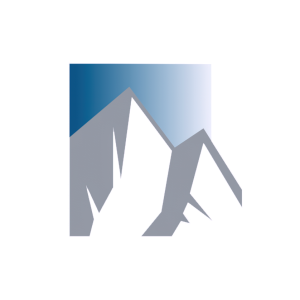Eiger BioPharmaceuticals Receives Rare Impact Award for Innovation from the National Organization of Rare Disorders (NORD) for the Development and FDA Approval of Zokinvy® (lonafarnib)
Rhea-AI Summary
Eiger BioPharmaceuticals (Nasdaq:EIGR) received the 2021 Rare Impact Award from NORD for its innovation in developing Zokinvy® (lonafarnib), the first FDA-approved therapy for reducing the risk of death in Hutchinson-Gilford Progeria Syndrome and processing-deficient progeroid laminopathies. This recognition highlights Eiger's commitment to addressing the needs of the rare disease community, achieved through partnerships with The Progeria Research Foundation and Boston Children's Hospital. Zokinvy is currently under review by the European Medicines Agency.
Positive
- Zokinvy is the first FDA-approved therapy for Hutchinson-Gilford Progeria Syndrome, offering a significant treatment breakthrough.
- Recognition from NORD underscores Eiger's commitment to innovation in rare diseases, enhancing its reputation in the biopharmaceuticals sector.
- Exclusive rights to lonafarnib allow Eiger to capitalize on market potential without milestone payments to Merck.
Negative
- Zokinvy is not indicated for patients with non-HGPS Progeroid Syndromes, limiting its market reach.
Insights
Analyzing...
PALO ALTO, Calif., June 29, 2021 /PRNewswire/ -- Eiger BioPharmaceuticals, Inc. (Nasdaq:EIGR), a commercial-stage biopharmaceutical company focused on the development and commercialization of targeted therapies for serious rare and ultra-rare diseases, today announced it has received the 2021 Rare Impact Award for Industry Innovation from the National Organization for Rare Disorders (NORD) for the development and approval of Zokinvy® (lonafarnib). Eiger received the award at the NORD 2021 Rare Impact Awards virtual event on June 28, 2021.
Zokinvy is the first and only FDA approved therapy to reduce the risk of death in patients with Hutchinson-Gilford Progeria Syndrome (HGPS or Progeria) and for the treatment of processing-deficient progeroid laminopathies.
"We are honored to receive this recognition from NORD for developing novel therapeutics that meet the needs of the rare disease community, which is at the core of our mission," said David Cory, President and CEO of Eiger. "The approval of Zokinvy is the culmination of a pioneering partnership between Eiger and The Progeria Research Foundation (PRF) to bring the first approved therapy to the Progeria community. I want to acknowledge the persistence and dedication of our partners at PRF and Boston Children's Hospital. We are deeply appreciative of their commitment and extremely grateful to all the children, young adults, and their families who have made this possible by participating in Zokinvy clinical trials."
The NORD Rare Impact Awards celebrate the individuals, groups, and companies making extraordinary contributions to the lives of rare disease patients and caregivers. NORD is the leading independent advocacy organization committed to the identification, treatment, and cure of rare disorders through programs of education, advocacy, research, and patient services.
About Zokinvy (lonafarnib)
Zokinvy blocks the accumulation of defective, farnesylated proteins which form tight associations with the nuclear envelope, leading to cellular instability and the process of premature aging in children and young adults with Progeria and processing-deficient Progeroid Laminopathies.
Eiger licensed exclusive worldwide rights to lonafarnib from Merck, known as MSD outside of the United States and Canada. Merck will not receive any milestone payments for the development of lonafarnib for the treatment of Progeria and has waived royalty obligations from Eiger for a specified quantity of lonafarnib.
About Progeria and Progeroid Laminopathies
Progeria, also known as Hutchinson-Gilford Progeria Syndrome (HGPS), and Progeroid Laminopathies are separate and distinct ultra-rare, fatal, genetic premature aging diseases that accelerate mortality in young patients.
Progeria is caused by a point mutation in the LMNA gene, yielding the farnesylated aberrant protein, progerin. Progeroid Laminopathies are genetic conditions of accelerated aging caused by a constellation of mutations in the LMNA and/or ZMPSTE24 genes yielding farnesylated proteins that are distinct from progerin. While non–progerin producing, these genetic mutations result in disease manifestations with phenotypes that have overlap with, but are distinct from, Progeria.
Without Zokinvy therapy, children with Progeria commonly die of the same heart disease that affects millions of normally aging adults (arteriosclerosis), by an average age of 14.5 years. Disease manifestations include severe failure to thrive, scleroderma–like skin, global lipodystrophy, alopecia, joint contractures, skeletal dysplasia, global accelerated atherosclerosis with cardiovascular decline, and debilitating strokes.
About Eiger
Eiger is a commercial-stage biopharmaceutical company focused on the development and commercialization of targeted therapies for serious rare and ultra-rare diseases.
Eiger's lead clinical programs are focused on the development of foundational therapies for Hepatitis Delta Virus (HDV) infection, the most serious form of viral hepatitis, with two complementary HDV treatments. Lonafarnib is a first-in-class, oral prenylation inhibitor in a global Phase 3 trial. Peginterferon lambda is a first-in-class, type III, well-tolerated interferon entering Phase 3.
Zokinvy® for the treatment of Hutchinson-Gilford Progeria Syndrome (HGPS or Progeria) and processing-deficient progeroid laminopathies is the Company's first FDA approved product. A Marketing Authorization Application (MAA) is under review by the European Medicines Agency (EMA).
For additional information about Eiger and its clinical programs, please visit www.eigerbio.com.
About The Progeria Research Foundation
The Progeria Research Foundation (PRF) was established in 1999 by the family of Sam Berns, a child with Progeria. Within four years of its founding, the PRF Genetics Consortium, in collaboration with Francis Collins, MD, PhD, discovered the Progeria gene. PRF has funded and co-coordinated all Zokinvy-associated clinical trials for Progeria and Progeroid Laminopathies, conducted at Boston Children's Hospital, and supports scientists who conduct Progeria research worldwide. PRF is the only non-profit organization solely dedicated to finding treatments and the cure for Progeria and its aging-related conditions, including heart disease. PRF's International Patient Registry includes over 330 children with Progeria in more than 65 countries. For more information, please visit www.progeriaresearch.org.
INDICATION
ZOKINVY is indicated in adult and pediatric patients 12 months of age and older with a body surface area (BSA) of 0.39 m2 and above:
- To reduce the risk of mortality in Hutchinson-Gilford Progeria Syndrome (HGPS)
- For the treatment of processing-deficient Progeroid Laminopathies with either:
- Heterozygous LMNA mutation with progerin-like protein accumulation
- Homozygous or compound heterozygous ZMPSTE24 mutations
Limitations of Use
ZOKINVY is not indicated for use in patients with non-HGPS Progeroid Syndromes or with Progeroid Laminopathies known to be processing-proficient. Based upon its mechanism of action, ZOKINVY would not be expected to be effective in these populations.
Contraindications
- Strong or moderate CYP3A inhibitors or inducers
- Midazolam
- Lovastatin, simvastatin, and atorvastatin
IMPORTANT SAFETY INFORMATION
- The most common adverse reactions are vomiting (
90% ), diarrhea (81% ), infection (78% ), nausea (56% ), decreased appetite (53% ), fatigue (51% ), upper-respiratory tract infection (51% ), abdominal pain (48% ), musculoskeletal pain (48% ), electrolyte abnormalities (43% ), headache (37% ), decreased weight (37% ), increased aspartate aminotransferase (35% ), myelosuppression (35% ), cough (33% ), decreased blood bicarbonate (33% ), hypertension (29% ), and increased alanine aminotransferase (27% ).
Gastrointestinal Adverse Reactions
- Gastrointestinal adverse reactions were the most frequently reported adverse reactions. Of the 57 patients (
90% ) that experienced vomiting, 30 (53% ) patients had mild vomiting, 26 (46% ) patients had moderate vomiting, and 1 (2% ) patient had severe vomiting. - Of the 35 patients (
56% ) that experienced nausea, 34 (97% ) patients had mild nausea and 1 (3% ) patient had moderate nausea. - Of the 51 patients (
81% ) that experienced diarrhea, the majority of patients (92% ) experienced mild or moderate diarrhea; 38 (75% ) patients reported mild diarrhea and 9 (18% ) patients reported moderate diarrhea. Four (8% ) patients reported severe diarrhea. - Loss of fluids and dehydration can be severe, leading to hospitalization. As a result, patients should receive therapy for diarrhea at the earliest signs in order to avoid possible severe complications.
Alanine Aminotransferase and Aspartate Aminotransferase Elevations
- Increased alanine aminotransferase was commonly reported (17 [
27% ] patients). Of the 17 patients with increased alanine aminotransferase, 14 (82% ) patients had mild increases, 1 (6% ) patient had moderate increases, and 2 (12% ) patients had severe increases. - Increased aspartate aminotransferase was also commonly reported (22 [
35% ] patients). Of the 22 patients with increased aspartate aminotransferase, 21 (95% ) patients had mild increases and 1 (5% ) patient had a severe increase.
Hypertension
- Increases in blood pressure have been documented in patients treated with ZOKINVY. At baseline 22 (
35% ) patients had either a systolic blood pressure or a diastolic blood pressure or both above the 95th percentile. Over the course of the trials, 18 (29% ) patients had hypertension based on systolic blood pressure or diastolic blood pressure measurements above the 95th percentile on 3 or more occasions. Five (8% ) patients who were normotensive at baseline had either systolic blood pressure or diastolic blood pressure above the 95th percentile at the end of treatment.
Ophthalmic Adverse Reactions
- Lonafarnib caused retinal toxicity in monkeys at 3.7 times the human dose based on plasma drug exposure, but not at 2.1 times the human dose.
Laboratory Abnormalities
Some patients treated with ZOKINVY developed laboratory abnormalities. These included:
- Electrolyte abnormalities (
43% ), such as hyperkalemia, hypokalemia, hyponatremia, or hypercalcemia - Myelosuppression (
35% ), such as reductions in absolute neutrophil count, white blood cell counts, lymphopenia, hemoglobin, or hematocrit - Increased liver enzymes, such as aspartate aminotransferase (
35% ), or alanine aminotransferase (27% ) These laboratory abnormalities often improved while continuing ZOKINVY, but it is not possible to exclude ZOKINVY as a cause of the abnormalities. Periodically monitor electrolytes, complete blood counts, and liver enzymes, and manage abnormalities accordingly.
Nephrotoxicity
- Lonafarnib caused nephrotoxicity in rats at plasma drug exposures approximately equal to that achieved with the human dose. Monitor renal function at regular intervals during ZOKINVY therapy.
Retinal Toxicity
- Lonafarnib caused rod-dependent, low-light vision decline in monkeys at plasma drug exposures similar to that achieved with the human dose. Perform ophthalmological evaluation at regular intervals and at the onset of any new visual changes during ZOKINVY therapy.
Impaired Fertility
- Lonafarnib caused impaired fertility in female rats at 1.2 times the human dose based on plasma drug exposure.
- Lonafarnib caused impaired fertility and testicular toxicity in male rats at 1.5 times the human dose based on plasma drug exposure, and toxicity in the male reproductive tract in monkeys at doses lower than the human dose based on plasma drug exposure.
Investors and Media:
Charles Butler
VP, Investor Relations & Corporate Communications
Email: cbutler@eigerbio.com
Phone: 1-650-272-6138
![]() View original content to download multimedia:https://www.prnewswire.com/news-releases/eiger-biopharmaceuticals-receives-rare-impact-award-for-innovation-from-the-national-organization-of-rare-disorders-nord-for-the-development-and-fda-approval-of-zokinvy-lonafarnib-301321817.html
View original content to download multimedia:https://www.prnewswire.com/news-releases/eiger-biopharmaceuticals-receives-rare-impact-award-for-innovation-from-the-national-organization-of-rare-disorders-nord-for-the-development-and-fda-approval-of-zokinvy-lonafarnib-301321817.html
SOURCE Eiger BioPharmaceuticals, Inc.









